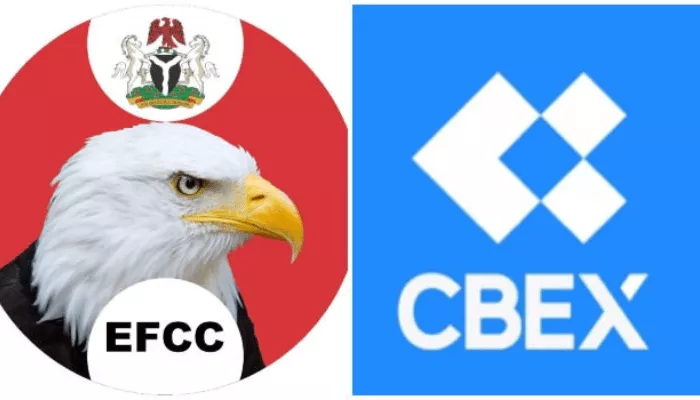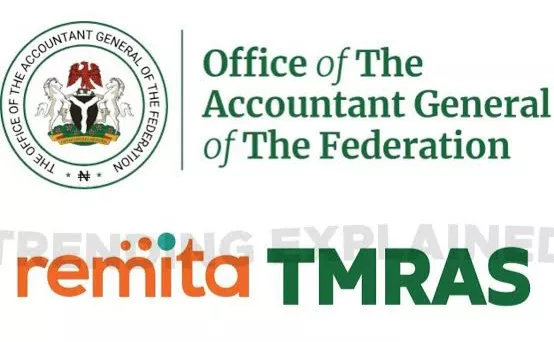As the financial world awaits pronouncements from the Central Bank’s just-concluded Monetary Policy Committee (MPC) meeting, the Naira has managed a slight gain in the official market. It’s a small upward tick, but any positive movement is notable right now, especially with a serious storm brewing in the Bureau De Change (BDC) sector. A fast-approaching recapitalization deadline there threatens a massive industry shake-up. These aren’t separate dramas; they’re interconnected factors setting the stage for Nigeria’s immediate economic future.
Contents
Naira’s Slight Uptick: Reading the Tea Leaves
Official figures from the Central Bank of Nigeria (CBN) on Monday showed the Naira firming to N1,597/$1. That’s a fractional improvement from Friday’s N1,599.01/$1. For those tracking the daily pulse, the CBN Exchange Rate Dollar to Naira Today provides ongoing context, and these official numbers can be checked against the Central Bank of Nigeria’s own exchange rate page.
The parallel market echoed this slight gain, with the Naira reportedly trading at N1,627/$1 in Lagos, inching up from N1,628/$1. While not game-changing, these movements contribute to a recent period of relative calm for the currency.
However, looking at Monday’s intraday trading reveals continued volatility—the Naira swung between N1,601.5/$1 and N1,580/$1. These swings underscore the persistent market pressures; the path to lasting stability clearly isn’t straightforward.
MPC Decisions Loom: Navigating Inflation and Growth
With the CBN’s Monetary Policy Committee wrapping up its landmark 300th meeting (May 19-20), the financial community is on edge for its decisions. These pronouncements are key, expected to map Nigeria’s course against stubborn inflation and for broader economic stability.
The economic climate demands a cautious yet decisive hand. Many economists and analysts predict the MPC will likely hold the Monetary Policy Rate (MPR) at 27.5%. Such a move would aim to let recent macroeconomic gains take root and allow earlier, aggressive tightening measures more time to work.
Still, high inflation, despite some very tentative signs of easing, remains a deep-seated problem. This has led some to speculate on a modest 25 basis point MPR hike—a signal of the CBN’s unwavering focus on the inflation fight.
For context, the MPC held steady in February 2025 (details from past meetings are usually available via CBN Monetary Policy Decisions):
- MPR: 27.5%
- Liquidity Ratio: 30%
- CRR: 50% (commercial banks), 16% (merchant banks).
While many anticipate a hold, a slight rate nudge isn’t off the table, particularly as global economic uncertainties could further buffet the domestic scene. The outcome here is crucial for market sentiment and the economy’s immediate direction.
BDC Sector Turmoil: Recapitalization Countdown
Meanwhile, the Bureau De Change sector is grappling with its own crisis. New, much steeper capital requirements from the CBN have sent shockwaves through the industry, and the compliance clock is ticking loudly.
Aminu Gwadebe, president of the Association of Bureau De Change Operators of Nigeria (ABCON), didn’t mince words recently, revealing that fewer than 5% of ABCON’s members have met the new thresholds. This alarmingly low figure, detailed in reports like Nairametrics’ coverage of the BDC recapitalization crisis, throws the immense challenge into sharp relief.
Gwadebe warned that without a CBN extension, the future for most BDCs is bleak. A mass shutdown is a very real prospect, which could severely disrupt the retail foreign exchange market. Fewer BDCs might make forex harder to get for individuals and small businesses needing to conduct international transactions from Nigeria, potentially driving more activity to the parallel market.
The new capital rules, announced by the CBN in May 2024, are a major hurdle:
- Tier 1 BDC License: N2 billion minimum share capital
- Tier 2 BDC License: N500 million minimum share capital
That’s a huge jump from the old N35 million general license fee. The CBN likely aims to create a stronger, more transparent BDC sector. The immediate fallout, however, is widespread anxiety.
With the deadline looming, ABCON and others are heavily lobbying for a policy rethink or at least more time.
Interconnected Challenges: A Tightrope Walk
These issues don’t exist in a vacuum; they’re all part of the complex pressures on Nigeria’s economy right now. While the Naira’s small gain offers some relief, larger uncertainties cast a shadow, particularly from the MPC and the BDC sector.
The MPC’s interest rate decisions will ripple through the economy, hitting borrowing costs, investment, and inflation. Another rate hike could help fight inflation and attract foreign investment, but it might also slow economic growth.
And how the BDC recapitalization unfolds will profoundly affect liquidity and transparency in the retail forex market. A sharp drop in licensed operators could create short-term gaps and possibly widen the spread between official and parallel market rates if demand isn’t smoothly met.
The Path Forward: Stability in Uncertain Times
Nigeria’s economy is clearly at a pivotal point. The fallout from the MPC’s decisions and the BDC shake-up will be felt widely. The Naira’s recent uptick offers a glimmer of hope, but genuine, lasting stability demands a multi-pronged strategy: one that effectively tackles inflation, ensures forex market transparency, and cultivates robust economic growth.
What policymakers and regulators do next will be crucial. Their navigation of these challenges will heavily influence the Naira’s trajectory and the overall health of the Nigerian economy in the coming months.
Disclaimer: This article provides an analysis of current events and should not be considered financial advice.











